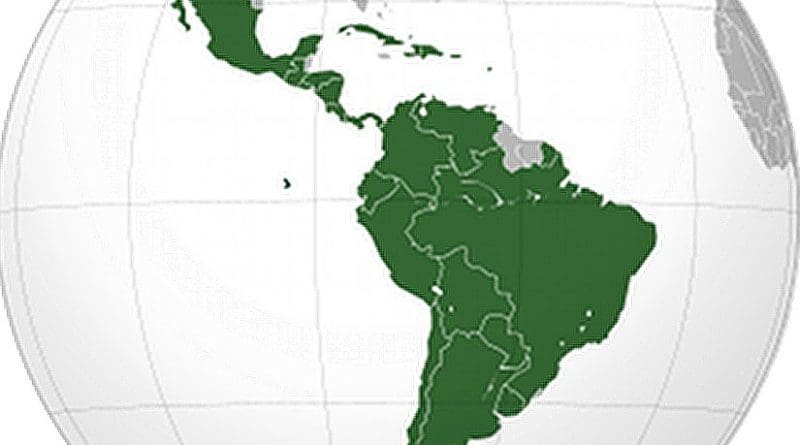US Military Joining Fight Against International Organized Crime
By Jim Kouri
The US military’s work with partners in South and Central America and the Caribbean has brought a range of gains in the area from close military cooperation to supporting the region’s fight against international organized crime organizations, American Forces Press Service’s Cheryl Pellerin said on Thursday.
In an extensive interview, Air Force General Douglas M. Fraser said Southern Command’s job is working with the nation’s military partners and defending U.S. approaches from the south.
And though he doesn’t see a traditional threat to the United States from any part of Central and South America or the Caribbean, the general firmly believes a threat does exist.
“I do see a nontraditional threat, and that is transnational organized crime,” he explained. “It’s pervasive throughout the region, [but has] a larger impact right now in Central America.”
The threat has a destabilizing impact on many countries, the general said, and includes trafficking in drugs, weapons and people; money laundering and bulk cash transfers; and many other avenues of illicit trade.
While the general omitted to mention it, the transnational crime groups were enabled by the Federal Reserve Bank to transfer funds from the U.S. to Mexico and other Latin American countries even if they are residing in the U.S. illegally.
Such criminal organizations have a corrosive impact on countries whose systems of government and institutions may be weak and whose populations are poor.
“It’s a concern that will continue to manifest itself for a long time,” Fraser added, “and it’s one that we just need to continue to work on, along with partners in the region.”
Southcom, which is based in Doral, Florida, near Miami, is one of the Defense Department’s nine unified combatant commands, providing contingency planning, operations and security cooperation for Central America, South America and the Caribbean.
The command oversees the force protection of U.S. military resources in the region and is responsible for ensuring the defense of the Panama Canal. Southcom’s more than 1,200 military and civilian personnel represent the Army, Navy, Air Force, Marine Corps, Coast Guard and other federal agencies.
Because organized crime is a focus of law enforcement and not military forces, the general added, Southcom has a supporting role in the fight.
Part of the criminal activity involves drug production and transport in and out of the region, he explained.
From law enforcement — primarily from the host nation, but supported by U.S. agencies — “we get indications of where those organizations are moving,” Fraser said.
“We’ll find [the criminals], watch them as they move through the maritime environment, and then coordinate with other law enforcement capacity or host nation capacity that can intercept, detain and take those individuals to prosecution and take care of the drugs,” he said.
Southcom also helps to support partner militaries, Fraser said, improving their capacity to support the internal requirements of nations in the region.
“It’s very much an interagency and an international approach, and there is no one solution, there is no silver bullet,” the general said. “We have to address each part.”
Fraser said Southcom has very positive relations with its military partners who, with exceptions such as Cuba, Bolivia and Venezuela, strongly support the United States.
Over the years of military-to-military cooperation with the United States, Fraser said, “we’re seeing that there’s more willingness of partner nations and nations in the region to help support one another.”
For example, he said, the Colombians “have a lot of experience, having fought now almost 40 years trying to reduce the impact of the [guerrilla militias] in Colombia … and they’re willing to share that experience and those lessons with other partners.”
Colombia is actively engaged with Mexico, Honduras and many other countries, he added.
Southcom also works with other agencies, including the U.S. Agency for International Development, to build capacity in Central and South America and the Caribbean to respond to natural disasters.
From Southcom’s perspective, Fraser said, defense of the United States doesn’t start at the U.S. border.
“We’re trying to move our defense further and further from our border, working with our partners,” he said.
Southcom’s relationship with nations in its region, the general added, “provides us with stability and security on our southern flank and that’s in our interest, [and] it improves the economic vitality of the region and our ability to trade with one another.”
Across the board, he said, “I see a great impact of our ability to stay engaged.”


Well…wonder who needed Interpol or CID to announce that they had continuously been engaged internationally since 1989? Example: As a member of the uSS New Jersey BB-62, (1989) we were…
It’s about time.